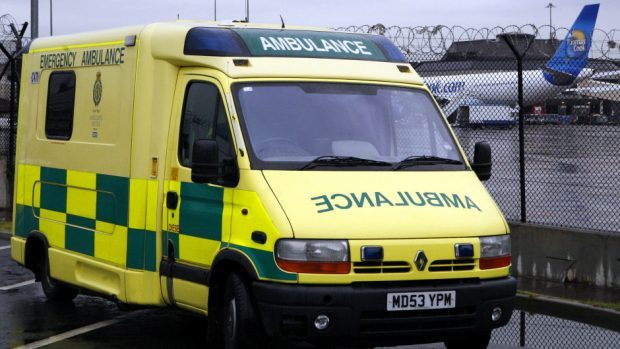Paramedics will trial a new system that could see ambulances reach patients with life-threatening conditions faster.
The pilot will prioritise calls to incidents such as cardiac arrests or serious car crashes over less urgent cases, with call handlers spending more time with those.
The McKandie family, from Miltonduff near Elgin, has been campaigning for emergency service procedures to be reviewed following “failings” that lead to the death of their son Keiran in March.
Ambulance crews took more than half an hour to reach the 16-year-old after he was hit by a car while cycling on the outskirts of the town.
Their case was raised at parliament this week by Moray MSP Richard Lochhead, who got Health Secretary Shona Robison to commit to “accelerating” efforts to improving response times to life threatening incidents.
Keiran’s mother Sandra suggested the planned changes were “good” – but that they missed the “bigger point”.
She wants to ensure the necessary emergency services are sent to all road incidents after it emerged fire crews with life-saving equipment were only notified when there was a spillage, risk of fire or someone is trapped – none of which were a factor when Keiran died.
She said: “We’ve wanted to do this because we don’t think it’s acceptable what happened to Keiran.
“It’s good out-of hospital cardiac arrest is being pushed forward so it’s being addressed for other people but they are missing the bigger point. There needs to be more joint-up working in place between the emergency services.
“If there isn’t an ambulance available, or is too far away, then the next best thing should be sent to help, which is obviously beneficial for the patient.
“They signed a memorandum of understanding in 2010. This shouldn’t be a new thing, it’s been six years in the making.”
Pauline Howie, chief executive of the Scottish Ambulance Service, said the new pilot – which will last for 12 months – was the result of “the most extensive clinically-evidenced review”.
She added: “It will allow us to respond faster to more patients with time-critical, immediately life-threatening conditions.
“In other situations, we will safely and more effectively identify and send the right resource first time for patients, resulting in better overall clinical outcomes.”
Opposition politicians cautiously welcomed the changes, but the Scottish Liberal Democrats health spokesman Alex Cole-Hamilton said it should not be a “substitute” for “ensuring ministers give the support the service needs”.
Tory Highlands and Islands MSP Donald Cameron added: “The organisation will have work to do if it’s to persuade people this is the correct approach.
“Some will wonder if those in urgent need of an ambulance, but haven’t suffered a heart attack or been in a road accident, risk receiving a lesser service.”
